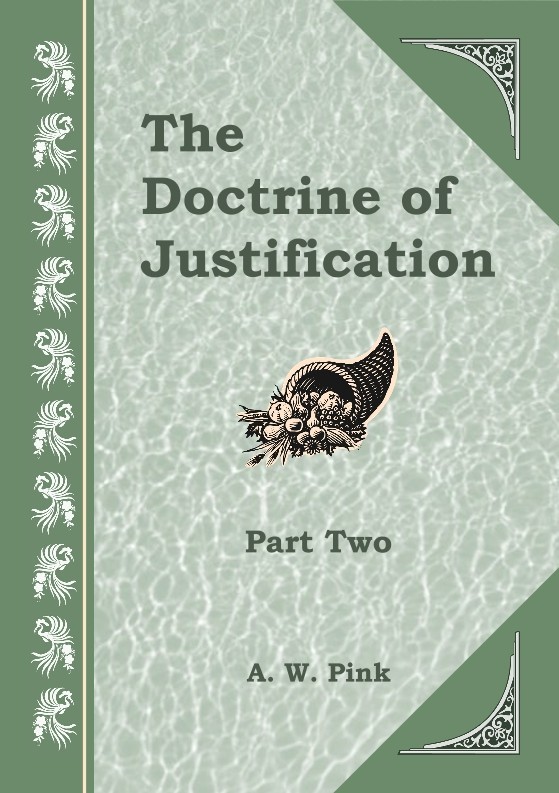
The Doctrine of Justification - Part Two
By A W Pink
Extract
The Doctrine of Justification – Part Two
5. Its Nature
6. Its Source
7. Its Objects
A. W. Pink
5. Its Nature
Justification, strictly speaking, consists in God’s imputing to His elect the righteousness of Christ, that alone being the meritorious cause or formal ground on which He pronounces them righteous: the righteousness of Christ is that to which God has respect when He pardons and accepts the sinner. By the nature of justification we have reference to the constituent elements of the same, which are enjoyed by the believer. These are, the non-imputation of guilt or the remission of sins, and second, of the investing of the believer with a legal title to Heaven. The alone ground on which God forgives any man’s sins, and admits him into His judicial favour, is the vicarious work of his Surety—that perfect satisfaction which Christ offered to the law on his behalf. It is of great importance to be clear on the fact that Christ was “made under the law” not only that He might redeem His people “from the curse of the law” (Gal. 3:13), but also that they might “receive the adoption of sons” (Gal. 4:4, 5), that is, be invested with the privileges of sons.
This grand doctrine of Justification was proclaimed in its purity and clarity by the Reformers—Luther, Calvin, Zanchius, Peter Martyr, etc.; but it began to be corrupted in the seventeenth century by men who had only a very superficial knowledge of it, who taught that justification consisted merely in the removal of guilt or forgiveness of sins, excluding the positive admittance of man into God’s judicial favour: in other words, they restricted justification unto deliverance from Hell, failing to declare that it also conveys a title unto Heaven. This error was perpetuated by …